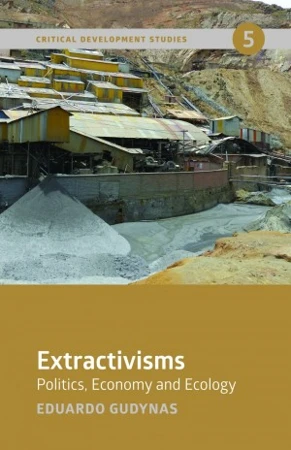Extractivisms – Politics, Economy and Ecology

Blurb
Nature and communities in the global south is being overwhelmed at a shocking rate. In many places this is due to ventures such as large-scale open-pit mining, oil extraction in tropical areas, and the spread of monocultures. These and other such forms of natural resource appropriation are usually known as extractivisms. This introductory book on the one hand adopts an interdisciplinary and critical perspective, incorporating contributions from economics, politics, ecology, and more. On the other hand it is an exercise in the politics among humans and with the environment. Eduardo Gudnyas explores negative local impacts such as ecological and health degradation or violence, along with spillover effects that redefines democracy and justice. Significantly, presented for the first time in English is a comprehensive overview of the theoretical innovations currently being discussed in the South, such as the distinction between appropriation and production modes and a redefinition of surplus to include social and economic features or new understandings on conflict dynamics. Furthermore, Gudynas discusses the Latin American peculiarities of extractivisms produced both by conservative and new-left governments, making clear that it has very deep roots in culture and ideologies, and offers solutions for the future.Book summary
Distinguished Uruguayan researcher Eduardo Gudynas explores extractivisms in the Global South in this fascinating, interdisciplinary book. This study of extractivisms illuminates the complex political relationships between humans and their natural environment, discussing the difficulty in combating extractivisms which are deeply rooted in Latin American culture and ideology. Through this study, the reader will come to understand the degradation caused by extractivisms, not just ecologically, but socially and politically, as Gudynas discusses its ‘spillover effects’ which seep into communities. Most significantly, Gudynas introduces us to the innovations borne in the Global South to combat extractivisms–theoretical concepts which include a redefinition of ‘surplus’ and a new understanding of conflict dynamics. These Global South-led solutions will present new solutions for the future.

